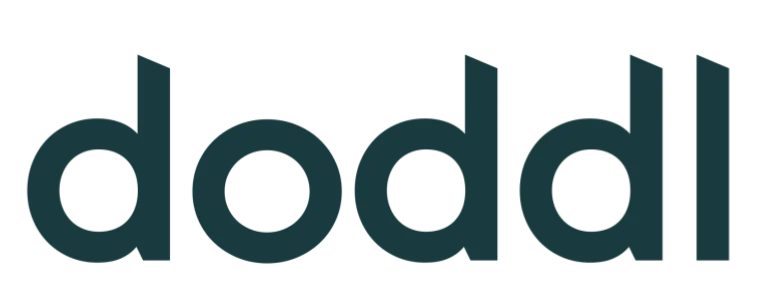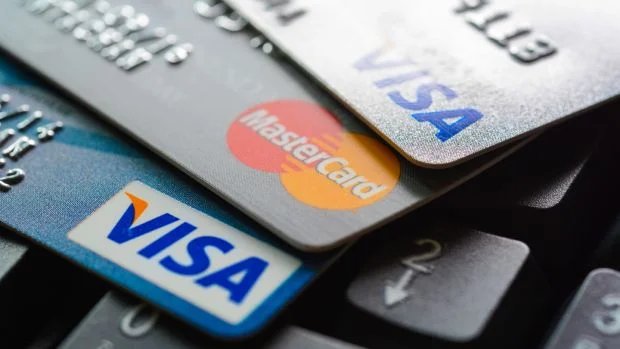Spend less and better: 10 ways to save money in January
Article: www.irishtimes.com
Pricewatch:
There’s quite a stretch until the next pay day, so here’s a few cost-cutting tips.
Assuming you were last paid a couple of days before Christmas and won’t get paid again until the end of the month, the gap between the final pay cheque of 2021 and the first one of 2022 could be 40 days.
As if a gap of almost six weeks between pay-days wasn’t bad enough, Christmas will have come at quite the cost for many people with presents and all the food and booze bought and consumed over what was the season to be jolly.
But rather than holding our head in our hands and shrieking about how hopeless it all is like some latter day Maude Flanders, we thought we would be positive and look at how to cut costs and save over the days and weeks ahead. And there are plenty of ways:
1. Own own-brand products
When generic products came to Ireland in the early 1980s they were, it is safe to say, not amazing. In fact many of the yellow pack products sold by Quinnsworth were so bad that they turned Irish shoppers off own brands for generations while the term “yellow pack” became synonymous with inferior.
But the world has come a long way since then and many own-brand products sold by Irish supermarkets today are as good – and sometimes better – then the branded products Irish shoppers still love to buy. Often the own-brand products are also made by brands.
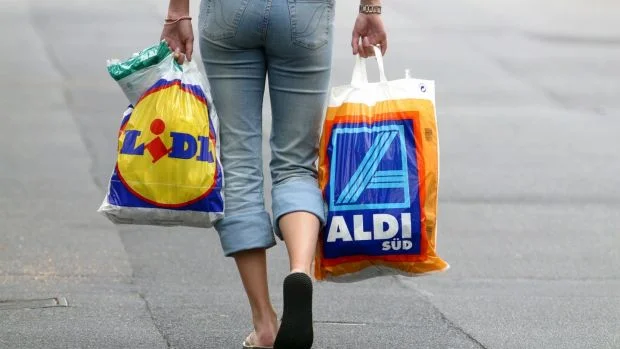
Changing the way you shop might knock 30 per cent off your weekly grocery bill. Photograph: Ulrich Baumgarten via Getty Images
We can thank Aldi and Lidl for many of the improvements. While own brand has grown in popularity over the last decade or so, Irish shoppers are still a long way adrift of our German cousins when it comes to wise shopping decisions. Less than 50 per cent of a typical shopping trolley in Ireland is made up of own-brand products. Germans spend less than 30 per cent of their money on branded products. Changing the way you shop might knock 30 per cent off your weekly grocery bill – that could save you €50 a week between now and the end of the month. Change how you shop for all of 2022 and you could be more than two grand better off.
2. Improve your shopping habits
When it comes to getting into financial shape, consider how you might improve your shopping habits. Use more lists and get into the habit of only buying what you need by checking what you have in your cupboards or your fridge before you go shopping. Put only what you need on the list and stick to it.
3. Cut down on alcohol
We are not suggesting you board the wagon and stay on it forever but a dry January can save money – even if the pubs and restaurants are still off limits for anyone who likes to have a social life beyond 8pm. The average Irish adult drinks the equivalent of eight pints of beer a week. That’s about €30 a week. Knock it on the head between now and the end of the month and you will be at least €100 better off.
4. Detox is toxic
Don’t spend money on detox diets or books or apps that promise to create a leaner you. Anything that claims to be a detox diet is lying to you. Your body is well able to detox itself without a faddy diet. Think long and hard before signing up to an online service that promises to help make you fitter or joining a gym. We are not against these things – in fact we are quite fond of our own gym and have been known to download the odd fitness app – but not in January. Most people who sign up to a gym in January have stopped going by the end of March.
5. Health insurance rethink
Many of the more than two million people with private health insurance will soon be facing renewals. Most will stay with the same provider and most of them are wasting money. If your renewal is coming up, call your insurer and ask for all the comparable plans to the one you have that cost less and use the Health Insurance Authority website to make comparisons (hia.ie) between your provider and others on the market. You could save yourself hundreds of euro with just a couple of hours work.
6. Spend nothing
Challenge yourself to spend nothing for just one day. Then see if you can make it to five days. Then seven. Spending money is a habit but if you put your mind to it, it can be broken. You’d be amazed at how easy and refreshing it is to get through a whole day without spending a bean.
7. No credit
Take your credit cards out of your wallet right now and put them in a hard to reach place – that is a long way from your wallet. Only use it in an absolute emergency – or when renting a car or staying in a hotel overseas. Shopping on the All Saints website after half a bottle of wine on a Saturday night is not an absolute emergency.
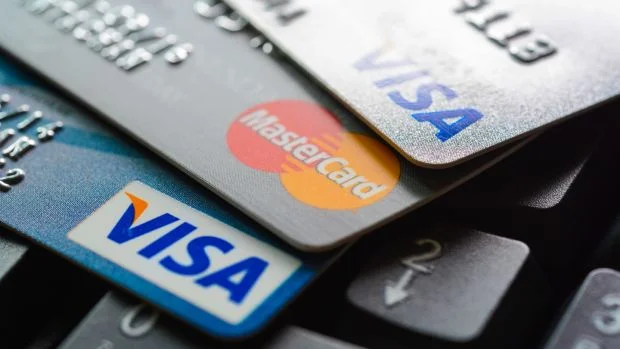
Taking your credit card out of your wallet might help you use it less. Photograph: iStock
8. Switch utilities again
We have said it before and we will say it again. You need to switch your utility providers every year if you want to get the best value for money. Shopping around for a new gas and electricity provider is hassle-free and could save you more than €500 over the next 12 months. More than three quarters of Irish people pay a standard tariff for both electricity and gas; they are all paying hundreds of euro more than they need to. The discounts companies offer are in place for a year only. So, to avail of them, you have to switch every year.
Moving provider is easy and – unlike switching cornflakes or health insurance – the end product is identical with the only difference being price. All you need to make the switch are copies of your most recent gas or electricity bill, or both if you’re a dual fuel customer. You also need your Gas Point Reference Number (GPRN) or Meter Point Reference Number (MPRN), which help energy suppliers identify your property. These numbers are on your bills. And finally, you need a current gas and/or electricity meter reading, so your old supplier can provide you with a final bill and your new supplier can start from that point.
Switching is not the only way to save. Turning the thermostat down by one degree will reduce heating energy consumption by up to 10 per cent. Other elemental steps to cut your energy costs include cooking more than one item at a time to make your oven more efficient and avoid opening the oven door while cooking, as 20 per cent of the heat escapes each time. Put lids on pots boiling on the stove and always turn down the heat when water starts to boil.
9 No bottle
We have a supply of good-quality water coming from our taps (well, most of us do). Think twice before you develop a serious bottled water habit. It takes three litres of regular water to manufacture a single litre of bottled water, and that plastic bottle will take some 1,000 years to biodegrade.
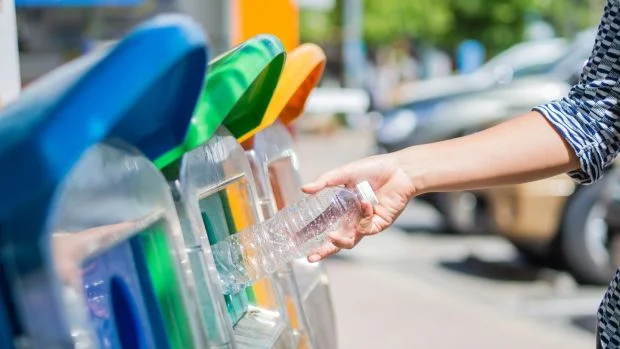
Try not to fall into the habit of drinking bottled water. Photograph: iStock
10. Audit yourself
Spend an hour or two going through your bank account online paying close attention to all the direct debits, standing orders and subscription services you are paying for. Ask yourself if they represent good value for money and if you are actually using them and if the answer is no to any of them, cancel. Even the very act of contacting a company to cancel a service or a subscription may prompt them to offer you a better deal.
Top saving tip: switch your mortgage
While you will save money by following some – and ideally all – of our top tips, there is another way a lot more money can be saved by people who have a mortgage, although many will steer clear of it because they reckon it will cause too much heartache.
Mortgage broker and managing director of doddl.ie Martina Hennessy says many people overexaggerate the complexity of switching mortgages. She says there are thousands of euros of annual savings on the table for anyone prepared to put in a little bit of effort.
While last year was a busy year for mortgage switchers (7,000 mortgage holders moved from one bank to another), Hennessy believes this year could be the year of the big switch.
According to the most recent doddl.ie mortgage switching index, Irish homeowners are needlessly handing over up to €4,258 in extra mortgage repayments per year by not switching lenders.
“The spread between the highest and lowest interest rates available on the market has now grown to 2.55 per cent, meaning a saving of up to €135 per month for every €100,000 owed on a 25-year mortgage for those who switch,” Hennessy says.
“Latest figures from the Central Statistics Office also show house price increases of 13.5 per cent in 2021. While this is a harsh reality for those looking to purchase a property, it does mean that there is an opportunity for existing homeowners to revisit their mortgage balance relative to their value and unlock lower rates as lenders tier their rates by loan to value.”
She says that the switching process is nowhere near as complex as getting a mortgage. “They do have to do their due diligence but for switchers they have streamlined the process,” she says. “You already have a mortgage and can prove you can afford the mortgage and provided the situation hasn’t changed, then there should be no real problems.”
She estimated that switching takes “eight days from start to finish with the bulk of the work simply pulling the paperwork together”.
Someone switching a €300,000 mortgage from the dearest provider on the market to the cheapest could be looking at savings of in excess of €8,000 over five years, which is not too shabby for eight days work.
“When we talk about switching, people associate it with buying a house and that can be really difficult and they have all the negative associations with it but this is just a transaction for a positive reason,” Hennessy says.
She points out that even someone who bought a house 12 months ago could make big savings by switching. “Lenders tie their rates to loan to value ratios and if you took out a 90 per cent mortgage a year ago, house price inflation means your LTV is now less than 80/20 and when you hit 80 per cent that is the biggest drop – that is when you can find at least half a per cent difference between rates.”
Put simply, she says not switching is “such a waste of money”. Hard to argue with that.
Your saving advice
We asked Twitter users for their best money-saving tips for January and received hundreds of responses. Here are some of them:
Never use cash. Track your spending habits. Set realistic budgets and stick them. Treat yourself, but don’t impulse buy. – Andy Scott
Keep a spread sheet of all the subscription services you are paying for [and] regularly reconcile it with the subscription services you use. – Daithí Ward
Stop buying things. You have enough things. You don’t need any more things. Saves me an absolute fortune. – Melanie May
Put €20 into a safe place every weekend. You would be amazed how quickly it builds up. It pays for my holidays. – Eoin Hurley
Create an annual AND monthly budget taking ALL expenses into account from coffees to medical to skincare. You’ll be surprised how much you’re wasting and how much you can cut back. Oh and avoid gambling, even the lottery and scratch cards! – Triona Reid
Batch cook using the same core ingredients and freeze in family-size portions eg lasagne, shepherds’ pie, chilli con carne. Another day chicken curry, chicken pie, chicken fajitas. No waste. Loads of meals with one lot of prep. A big freezer helps! Label everything with date. – Geraldine D’Arcy
If you’re getting paid monthly, get work to pay you into a hard-to-access bank account and pay yourself weekly into your current account. I am paid into my mortgage offset account and have a separate current account. – Toby Gilbert
Crush your cans and flatten milk and bulky containers before putting them in the bin. It will fill up more slowly and you won’t be paying for bin bags to throw them half full of air. – Gabriela Guedez
Figure out your net pay per hour, then ask yourself – would I work for X no of hours if the payment was…(this pair of shoes, this holiday…etc) often the answer is no way! – Clodagh O’Reilly
One or two spend nothing days each week. It’s amazing what happens when you don’t spend money. It stays in the bank! – Áine Carroll
Set up a credit union account and pay into it from your current account. It’s more effort to get the money back out, so your savings mount up! – Ellen Donnelly
Don’t get a credit card! – Alana Fearon
While taking these simple steps will not get you out of a financial black hole, they will make a difference. When you tot it all up, some people could save up to €738.80. (Although to make that saving you will need to be a soon-to-be-ex-smoker.) For most, the savings outlined here amount to a more modest but not inconsiderable €459.80.
